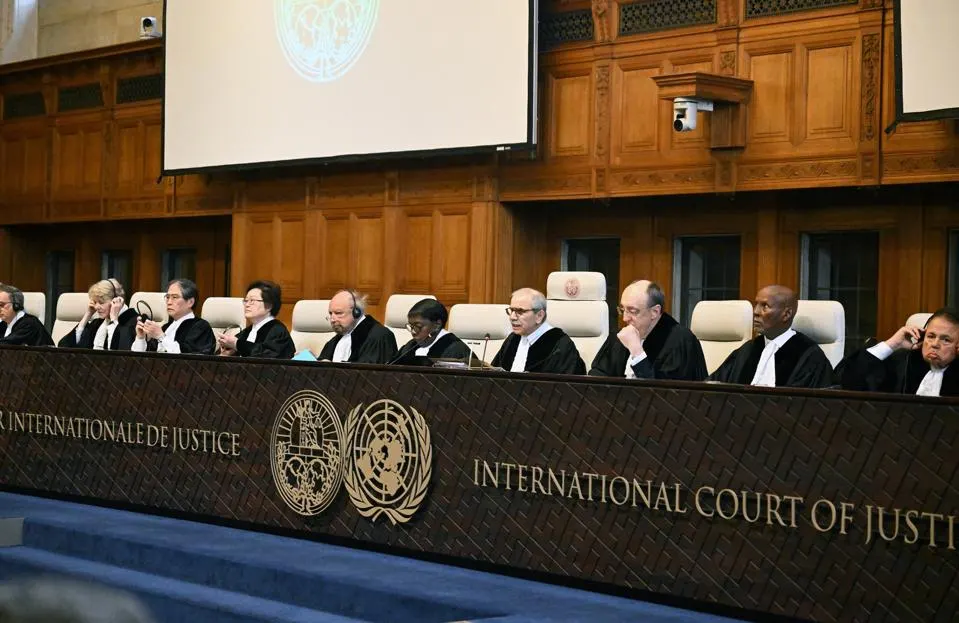In a move that could reshape global climate accountability, the International Court of Justice (ICJ) delivered its highly anticipated advisory opinion on July 23, 2025, clarifying state obligations regarding climate change. The landmark decision offers unprecedented clarity on the legal responsibilities of countries to tackle rising greenhouse gas emissions (GHG emissions) and their devastating effects.
The request for this advisory opinion, initiated by the small island nation of Vanuatu and supported by over 130 countries, underscores the urgent existential threat of climate change worldwide. For years, vulnerable nations have borne the brunt of a crisis largely fueled by polluting nations and their historical emissions. The ICJ’s ruling unequivocally asserts that states failing to take meaningful action to protect the climate and nature systems could be interpreted as a breach of international law under customary principles
Defining State Responsibility and the Right to a Healthy Environment
At the heart of the ICJ climate ruling is the affirmation that inaction on climate change could be unlawful. The 15-judge panel, in its comprehensive 500-plus page opinion, declared that every person has a fundamental human right to a clean, healthy, and sustainable environment. This pivotal recognition could significantly shape future climate litigation at both national and international levels, providing a powerful legal tool for affected communities seeking redress.
The Court explicitly outlined that states have a legal duty to prevent significant environmental harm and to cooperate in addressing the climate crisis. This extends beyond existing climate treaties like the Paris Agreement, drawing upon broader principles of customary international law. Importantly, the opinion also opens the door for reparations for countries already impacted by the crisis, stating that if states have legal duties to prevent climate harm, then victims of that harm have a right to redress, potentially in the form of restitution or compensation.
Fossil Fuels and Future Generations: A Clear Message
One of the most impactful aspects of the ICJ advisory opinion is its direct implications for fossil fuels. The Court’s pronouncement suggests that the failure of a state to take appropriate action to protect the climate system from GHG emissions – including through fossil fuel production, fossil fuel consumption, the granting of fossil fuel exploration licenses, or the provision of fossil fuel subsidies – may constitute an internationally wrongful act. This sends a strong signal to governments and corporations alike: the era of unchecked fossil fuel extraction and use is facing a new era of legal scrutiny.
The ruling also places a significant emphasis on future generations and intergenerational equity. By asserting that states must safeguard the climate system for those yet to be born, the ICJ reinforces a moral imperative with concrete legal backing. This legal precedent could empower youth movements and future claimants in their pursuit of climate accountability.
The Road Ahead: Influence, Not Just Enforcement
While the ICJ ruling is an advisory opinion, its influence is expected to be immense. As the highest judicial body of the United Nations, the ICJ’s pronouncements carry significant legal and moral weight. Legal experts anticipate that this opinion will:
Guide national and international courts: Providing a robust framework for judges in ongoing and future climate litigation cases.
Strengthen climate policy-making: Offering a legal baseline against which to assess national climate action and ambition.
Inject momentum into climate negotiations: Potentially unlocking stalled discussions and strengthening demands for climate finance at upcoming conferences like COP30 in Brazil.
Empower civil society: Giving climate advocates a powerful new instrument to pressure governments and corporations.
The ICJ’s detailed opinion meticulously rejected various legal loopholes that major emitters might have used to evade responsibility, reaffirming that the law applies to all. The Court’s embrace of the 1.5°C target from the Paris Agreement as a guiding principle further solidifies the scientific consensus within international legal frameworks. The world is watching, and with this opinion, the legal landscape for climate action has irrevocably shifted.
From The Hague to the Hudson: Mobilizing Action at Climate Week NYC
As global climate leaders turn their attention to Climate Week NYC, the ICJ ruling is expected to be a central talking point. This crucial annual gathering of global leaders, policymakers, businesses, and climate advocates will serve as a vital platform to discuss the practical implications of the ICJ’s ruling and will undoubtedly drive conversations around enhanced climate accountability, adaptation, and accelerated solutions.
For those seeking to be at the forefront of these discussions and contribute to actionable change, The Nest Climate Campus is the official event partner of Climate Week NYC, running from September 23-25, 2025 at the Javits Center. It offers a prime opportunity to connect with leading thinkers and doers in the climate space. The Nest Climate Campus is actively seeking thought leaders to share insights on translating the ICJ’s legal framework into tangible climate action in addition to other topics.
For more on speaker opportunities and how to engage, visit The Nest Climate Campus website.

